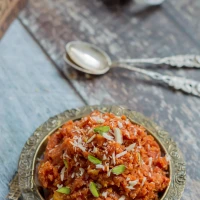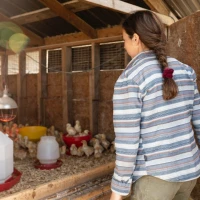Picture a flock of chickens pecking around in the yard, clucking contentedly as they happen upon a leafy green treat. That treat? Cabbage – a nutritious and delicious snack that your backyard friends will absolutely adore. But why cabbage, you might ask? As an experienced SEO content creator and writer passionate about backyard poultry, I’m here to unveil the many wonders of feeding cabbage to your chickens and how it can contribute to their overall happiness and health.
What’s so special about cabbage for chickens, and how can it enhance the quality of their diet? It’s time to dive into the depths of poultry nutrition and explore the myriad benefits that cabbage offers to these feathered foragers.
The Nutritional Profile of Cabbage: A Superfood for Chickens?
Before we ask if chicken eating mangos can have cabbage, let’s analyze what makes this vegetable such a standout choice. Its composition is rich in vital nutrients, all of which play a significant role in the well-being of poultry.
- Vitamins: Cabbage is notably high in vitamin C and an array of B vitamins.
- Minerals: It provides essential minerals such as potassium and magnesium.
- Fiber: The high fiber content in cabbage aids in digestive health.
These nutrients are instrumental in bolstering the immune system of can chickens eat mango, while also keeping their feathers glossy and their bodies robust.
The Immune-Boosting Powerhouse: Vitamin C in Cabbage
It’s common knowledge that vitamin C is a crucial antioxidant, but lesser-known is its effectiveness in poultry. Chickens, unlike humans, can chickens eat cabbage synthesize their own vitamin C. However, supplementing with cabbage can bolster their natural defenses, especially in times of stress or sickness.
Digestive Health and Fiber: The Underappreciated Nutrient
The fiber found in cabbage is not just a filler; it’s a vital component for maintaining a healthy gut in can chickens have mango. Fiber helps:
- Regulate bowels
- Prevent obesity by providing a sense of fullness
- Aid in the prevention of crop-bound conditions
Providing your chickens companion planting with cabbage a balanced diet inclusive of cabbage can promote their overall digestive well-being.
Safety First: Introducing Cabbage into Your Chickens’ Diet
While cabbage is a wonderful addition to the dietary repertoire of your can chickens have broccoli, it’s crucial to offer it safely. Here’s how to do it right:
Gradual Introduction: The Key to Dietary Adjustments
Introducing any new food to your can chickens eat brussel sprouts should be a gradual process. Start with small amounts of shredded cabbage to allow their digestive systems to adapt.
Moderation Matters: The Potential Pitfalls of Overfeeding
Like all things in life, balance is key. Overfeeding cabbage can lead to health issues such as goitrogens affecting thyroid function. Always feed cabbage in moderation as part of a diverse diet.
Organic Over Ordinary: The Cleanest Choice for Your Chickens
Opt for organic cabbage if possible to reduce exposure to pesticides. Pesticide residues can accumulate in chickens, potentially affecting their health and the quality of their eggs.
Enticing Your Chickens: Creative Ways to Serve Cabbage
Now that we’ve established the why and how of feeding cabbage to chickens, let’s explore some fun and inventive ways to serve it.
The Cabbage Pinata: A Pecking Pleasure
Hang a whole cabbage just above head level in the coop and watch your chickens jump and peck at it with delight – a fantastic way to entertain them while they eat!
Shredded and Spread: An Easy Access Approach
Scatter shredded cabbage around the coop or run. This mimics the natural foraging behavior of chickens and encourages exercise.
Mixed Meals: A Diversity of Delights
Combine cabbage with other chicken favorites like mealworms or corn to create a varied and appetizing meal that will keep your chickens coming back for more.
Understanding the Risks: When Cabbage Isn’t Right for Your Chickens
Cabbage is typically safe for chickens, but there are scenarios when caution is necessary.
Health Conditions to Consider
- Hyperthyroidism: As mentioned, goitrogens in cabbage can affect thyroid health, so chickens with thyroid issues should have limited or no cabbage.
- Digestive Sensitivities: Some chickens might exhibit sensitivity to the fiber in cabbage. Monitor for any signs of discomfort or irregularity.
Recognizing Quality: The Good, The Bad, and The Moldy
Always ensure the cabbage you’re offering is fresh and free from rot or mold. Spoiled vegetables can harbor toxins that are harmful to chickens.
Go Beyond Cabbage: Other Chicken-Safe Veggies to Explore
While cabbage is undoubtedly a treat, let’s not forget about the spectrum of other vegetables that can enrich your chickens’ diet.
- Leafy Greens: Kale, spinach, and Swiss chard are all excellent choices rich in nutrients.
- Root Vegetables: Carrots and beets provide a sweet crunch that chickens love.
- Squash: A fall favorite, squash offers both fun and food for your flock.
Rotate through various veggies to keep your chickens keen and content with their daily dining experiences.
The Final Verdict: Should You Feed Your Chickens Cabbage?
At the end of the day, the question isn’t can chickens have cabbage, but rather should they – and the answer is a resounding yes! With the correct serving sizes, careful introduction, and consideration for health conditions, cabbage is a splendid supplement to a healthy chicken diet. It’s not only nutritious but also provides a source of entertainment and environmental enrichment for your feathered friends.
Unleashing the Joy of Cabbage Treats
Embrace the joy that cabbage treats can bring to your flock. Watch as your chickens hop, peck, and play with this leafy green, all while boosting their health and happiness.
Optimizing Egg Production: The Role of a Balanced Diet
Chickens fed a varied diet, including cabbage, are likely to be vigorous layers. The variety ensures they receive all the nutrients needed for optimal egg production.
Healthy Chickens, Happy Eggs
Ultimately, the healthier your chickens are, the better quality eggs they’ll produce – and incorporating cabbage into their diet contributes to that vitality.
Cabbage is more than just a vegetable; it’s a multi-faceted addition to your chickens’ diet that offers health benefits, fun, and flavor. Whether dangling from a string or mixed in with their feed, cabbage provides a punch of nutrition that can keep your flock flourishing. So go ahead, treat your chickens to some cabbage and watch as they revel in this leafy green delight.










